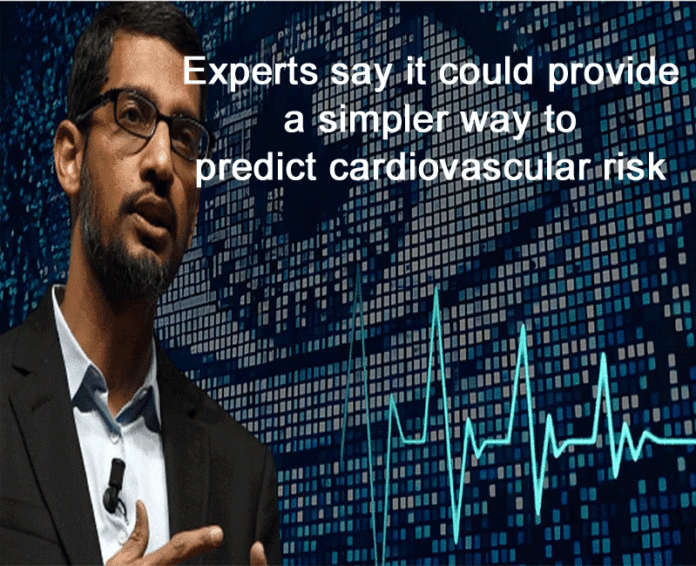
Sundar Pichai reveals Google’s AI breakthrough: A quick eye scan that can predict your risk of heart disease, offering a potential alternative to traditional CT scans, MRIs, and X-rays.
Scientists from Google and its health-tech subsidiary Verily have discovered a new way to assess a person’s risk of heart disease using machine learning. By analyzing scans of the back of a patient’s eye, the company’s software is able to accurately deduce data, including an individual’s age, blood pressure, and whether or not they smoke. This can then be used to predict their risk of suffering a major cardiac event — such as a heart attack — with roughly the same accuracy as current leading methods.
The journey began four years ago when a joint team of researchers from Google and Aravind Eye Hospital embarked on a mission to develop an automated tool for detecting diabetic retinopathy, a leading cause of blindness globally. The algorithm they developed could recognize the signs of the disease and deliver a diagnosis within seconds when supplied with a patient’s retinal photos. The algorithm is expected to be given the green light to operate independently soon, changing the landscape of eye disease detection and management.
But the AI’s capabilities didn’t stop there. Earlier this year, Google debuted an algorithm capable of identifying a person’s sex, smoking status, and predicting the five-year risk of a heart attack, all based on retinal imagery. The AI had the ability to pick up on problems that the people who trained it couldn’t, opening up a world of possibilities for early detection of other diseases such as dementia, multiple sclerosis, Parkinson’s, Alzheimer’s, and even schizophrenia.
The algorithm potentially makes it quicker and easier for doctors to analyze a patient’s cardiovascular risk, as it doesn’t require a blood test. But, the method will need to be tested more thoroughly before it can be used in a clinical setting. A paper describing the work was published today in the Nature journal Biomedical Engineering, although the research was also shared before peer review last September.
Google’s algorithm could mean quicker predictions of cardiovascular risk
Luke Oakden-Rayner, a medical researcher at the University of Adelaide who specializes in machine learning analysis, told The Verge that the work was solid, and shows how AI can help improve existing diagnostic tools. “They’re taking data that’s been captured for one clinical reason and getting more out of it than we currently do,” said Oakden-Rayner. “Rather than replacing doctors, it’s trying to extend what we can actually do.”
To train the algorithm, Google and Verily’s scientists used machine learning to analyze a medical dataset of nearly 300,000 patients. This information included eye scans as well as general medical data. As with all deep learning analysis, neural networks were then used to mine this information for patterns, learning to associate telltale signs in the eye scans with the metrics needed to predict cardiovascular risk (e.g., age and blood pressure).

Although the idea of looking at your eyes to judge the health of your heart sounds unusual, it draws from a body of established research. The rear interior wall of the eye (the fundus) is chock-full of blood vessels that reflect the body’s overall health. By studying their appearance with camera and microscope, doctors can infer things like an individual’s blood pressure, age, and whether or not they smoke, which are all important predictors of cardiovascular health.



















































